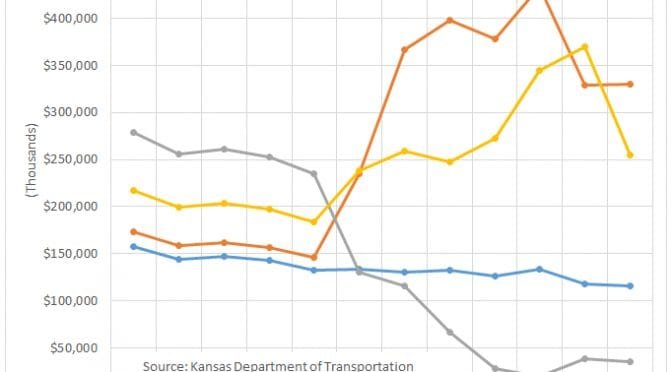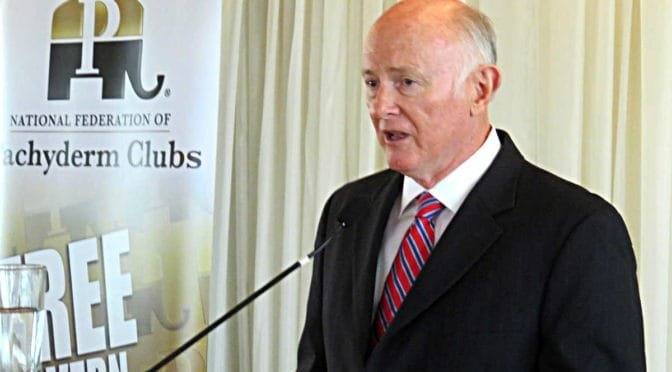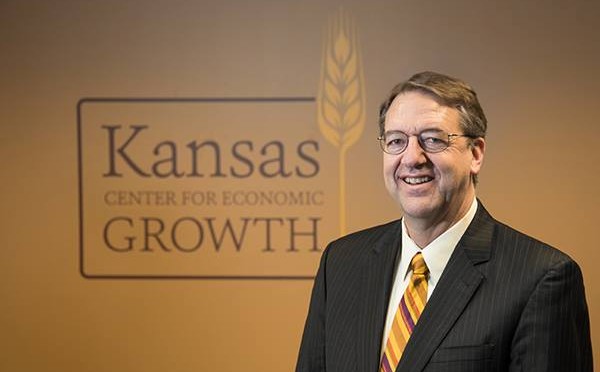Category: Kansas state government
-

Kansas highway spending
A look at actual spending on Kansas highways, apart from transfers.
-

From Pachyderm: Kansas Secretary of Revenue Sam Williams
From the Wichita Pachyderm Club: Kansas Secretary of Revenue Sam Williams.
-

Kansas legislative highlights for 2017
Kansas Legislative Research Department has released its annual highlights of legislation document for the 2017 session.
-

Happy Fiscal New Year, Kansas (not)
A Kansas public policy group celebrates tax increases. But it isn’t enough, and more reform is required.
-

Deconstructing Don Hineman
Another Kansas legislator explains why raising taxes was necessary. So he says.
-

Decoding Duane Goossen
When reading the writings of former Kansas State Budget Director Duane Goossen, it’s useful to have a guide grounded in reality.
-

Voting to raise taxes in Kansas
Printable tables of voting on legislation that raised taxes in Kansas.
-

In Kansas, sweeps to continue
Even though the Kansas Legislature raised taxes, sweeps from the highway fund will continue.
-

Kansas bills deserve the veto pen
Kansas Governor Sam Brownback may exercise a line item veto over any item in the just-passed budget and school spending bills. Here are a few ideas that deserve the veto.
-

The yardstick for the Kansas experiment
A politician’s boasting should not be the yardstick for policy.
-

Explaining the Kansas budget, in a way
A video explaining the Kansas budget is accurate in many aspects, but portrays a false and harmful myth regarding school spending.
-

Medicaid expansion survey in Kansas
Should Kansans accept the results of a public opinion poll when little is known about it?